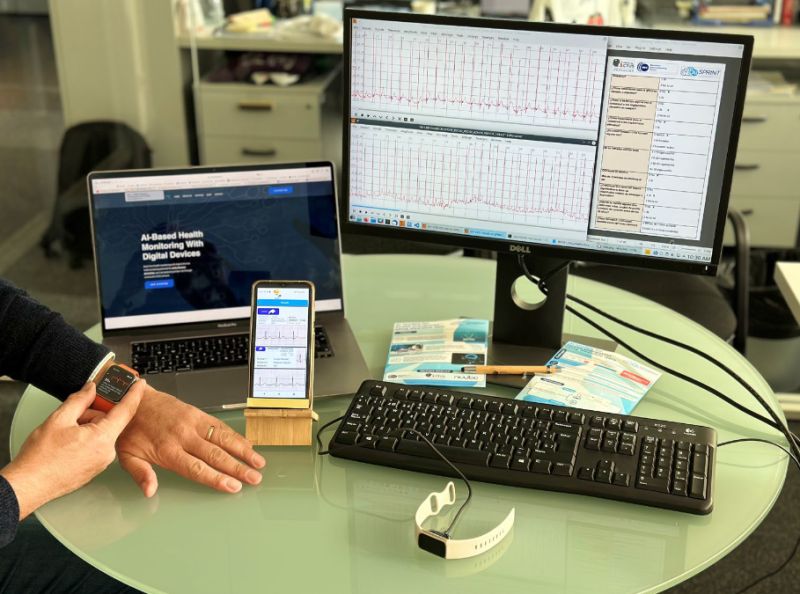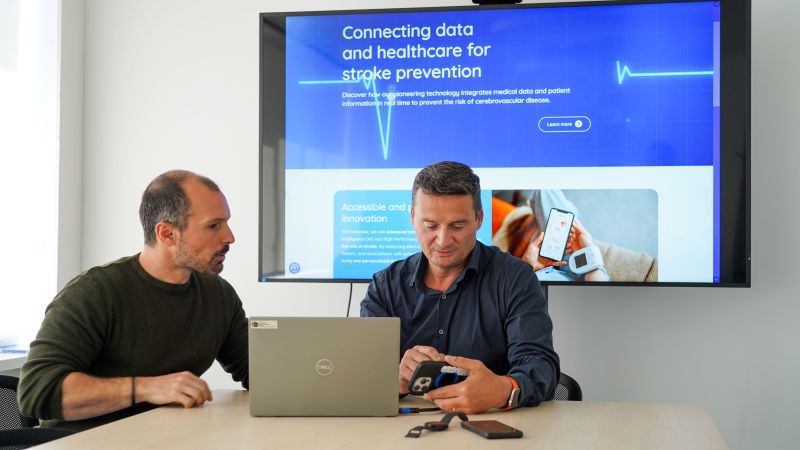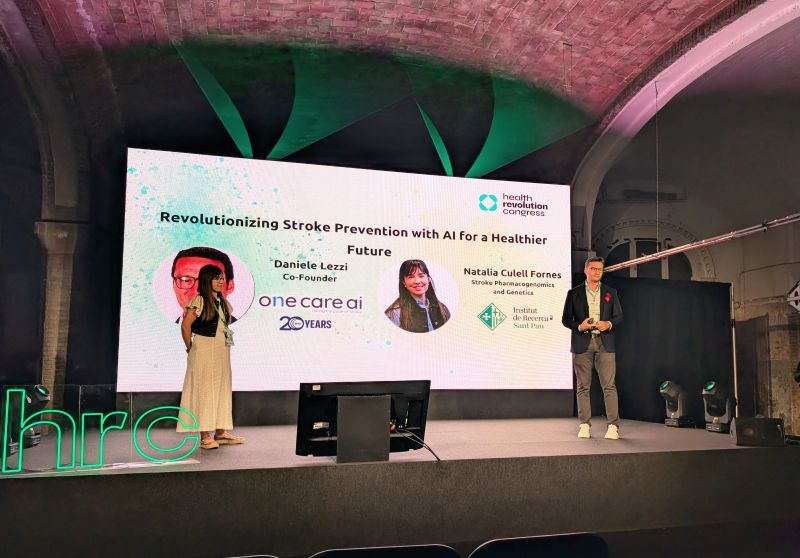OneCareAI’s mission aims to implement artificial intelligence with wearable devices, transforming stroke prevention and monitoring, one of the global mortalities, from a simple ECG.
- OneCareAI’s technology was developed through a collaborative effort between the Computer Science and Life Sciences departments at the Barcelona Supercomputing Center, involving experts from various fields, including biotechnologists and computer engineers.
- The system utilizes electrocardiogram (ECG) data gathered from mobile devices like smartwatches and integrates lifestyle information via a dedicated mobile app.
- In partnership with Sant Pau Hospital, the project aims to add a third layer of stroke risk assessment— genetic and molecular biomarkers— paving the way for personalized, proactive healthcare that enhances patients’ quality of life.
As part of the digital health and personalized medicine landscape, OneCareAI, developed by researchers at the BSC, centers on leveraging digital tools and artificial intelligence to deliver more efficient, accurate, individualized, and non-invasive medical care. The technology addresses three goals: preventing and monitoring strokes, applying AI to tailor medical treatments, and creating digital health platforms specifically designed for use in hospital environments.
The development of this technology began within the framework of the European AI-SPRINT research project . The technology utilizes ECG data gathered from wearable devices like smartwatches and integrates lifestyle through a mobile app. These two components cover the primary stroke risk factors. In addition, OneCareAI would introduce the incorporation of genetic and molecular biomarkers. OneCareAI’s technology would extract omics from a standard ECG reading.
“By using advanced artificial intelligence technology and high-performance computing (HPC), we aim to provide continuous and more accurate risk monitoring, which could represent a major advance in stroke prevention,” says Daniele Lezzi , a BSC researcher and Co-Founder of OneCareAI, in the Department of Computer Science and developer of the technology.
This advancement has the potential to enhance stroke risk monitoring and significantly improve the prediction and prevention of neurovascular diseases through the use of AI-powered tools and multi-omics data. Multi-omics refers to the integration of diverse biological datasets from various molecular levels within an individual, providing researchers with a deep and comprehensive understanding of its biological processes.
“In collaboration with Israel Fernandez, principal investigator of the pharmacogenomics and stroke genetics group at the Sant Pau Hospital Research Institute, we seek to refine the technology’s predictive capabilities by incorporating genetic and molecular biomarkers. This multifaceted approach will allow us to offer personalized and proactive medical care, significantly improving patients’ quality of life,” says Davide Cirillo , a BSC researcher and Co-Founder of OneCareAI, in the Department of Life Sciences and an expert in personalized medicine.
Thanks to the funding received from the Recovery, Transformation, and Resilience Plan and within the National Artificial Intelligence Strategy, OneCareAI will not only offer numerous innovations but will also seek to expand its reach to the market and accessibility to public healthcare systems, maximizing its impact on stroke prevention and other health risks. The possibility of applying the technology to other areas and/or other neuro- and cardiovascular diseases will be studied, thus fostering the technological innovation generated by the BSC.



